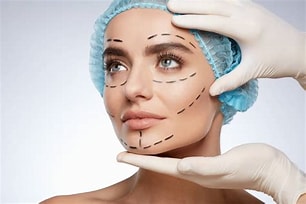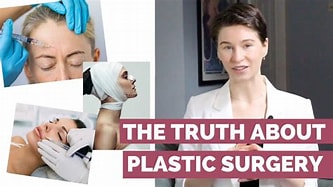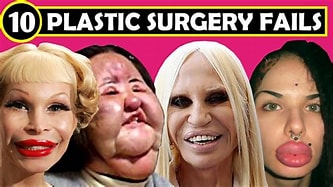Is Plastic Surgery Empowering or Problematic?
Introduction
In a world where self-expression and individuality are celebrated, plastic surgery has emerged as a controversial topic. For some, it represents empowerment and the freedom to shape one’s own body. For others, it perpetuates harmful beauty standards that can lead to insecurity and dissatisfaction. So, is plastic surgery empowering or problematic? This article explores the multifaceted debate surrounding plastic surgery, examining its implications on self-esteem, societal norms, and the quest for beauty.
Understanding Plastic Surgery
What is Plastic Surgery?
Plastic surgery encompasses a range of procedures designed to alter or enhance physical appearance. It can be broadly categorized into two types: reconstructive surgery, which aims to restore function and appearance after injury or illness, and cosmetic surgery, which focuses on enhancing aesthetic appeal. While reconstructive surgery is often viewed positively, cosmetic procedures can evoke mixed feelings.

The Rise of Cosmetic Surgery
The popularity of cosmetic surgery has surged in recent years, driven by societal pressures and the influence of social media. According to the American Society of Plastic Surgeons, millions of cosmetic procedures are performed annually, with breast augmentations, liposuction, and rhinoplasties among the most common. This increase raises questions about the motivations behind these choices.
Empowerment Through Self-Expression
The Argument for Empowerment
Proponents of plastic surgery argue that it empowers individuals to take control of their bodies and express themselves. For many, undergoing a procedure can boost self-confidence and improve quality of life. When someone feels good about their appearance, it can positively affect their mental health and social interactions.
Personal Stories of Transformation
Many individuals share stories of how plastic surgery has transformed their lives. For example, someone who struggled with body image issues may find renewed confidence after a breast augmentation or a nose job. These personal narratives highlight the potential for cosmetic procedures to serve as tools for self-empowerment rather than mere conformity to societal standards.
Challenging Societal Norms
In some cases, plastic surgery challenges traditional beauty norms. Individuals who undergo procedures may do so not just to fit in but to redefine beauty on their terms. This act of defiance against societal expectations can be empowering in itself.

The Problematic Side of Plastic Surgery
Reinforcing Harmful Beauty Standards
While some view plastic surgery as empowering, critics argue that it reinforces unrealistic beauty standards. The media often glorifies certain body types—think slim waists and full lips—leading many to feel inadequate if they don’t conform. This pressure can drive individuals to seek surgical solutions rather than embracing their natural bodies.
The Role of Social Media
Social media plays a significant role in shaping perceptions of beauty. Influencers and celebrities frequently showcase their surgically enhanced appearances, creating an environment where followers may feel compelled to undergo similar transformations. A study found that exposure to idealized images on social media correlates with body dissatisfaction among young women.
Psychological Implications
The psychological impact of pursuing an idealized appearance through plastic surgery cannot be overlooked. Many individuals experience post-operative regret or dissatisfaction with their results. Research indicates that those with pre-existing mental health issues may be more likely to seek out cosmetic procedures in hopes of achieving happiness through external changes.
The Intersection of Empowerment and Exploitation
The Fine Line Between Choice and Pressure
While individuals may choose to undergo plastic surgery out of a desire for empowerment, societal pressures can complicate this choice. Are people truly making autonomous decisions about their bodies, or are they succumbing to external influences? This question highlights the tension between personal agency and societal expectations.
The Influence of Celebrity Culture
Celebrities often set trends in beauty standards, leading many fans to emulate their looks through plastic surgery. When public figures deny having undergone procedures while promoting unattainable beauty ideals, they contribute to a culture that equates worth with appearance. This disconnect can leave fans feeling inadequate and pressured to conform.
Navigating Body Image Issues
Understanding Body Dysmorphic Disorder (BDD)
Body Dysmorphic Disorder (BDD) is a mental health condition characterized by obsessive thoughts about perceived flaws in appearance. Individuals with BDD may seek multiple cosmetic procedures in an attempt to “fix” these flaws but often find that their dissatisfaction persists. Understanding BDD is crucial for recognizing when the pursuit of beauty becomes problematic.

Seeking Help Before Surgery
Before considering plastic surgery, individuals should engage in self-reflection and seek professional guidance if necessary. Mental health professionals can help assess underlying motivations for pursuing cosmetic enhancements and address any body image issues that may exist.
The Role of Education and Awareness
Promoting Healthy Body Image
Education plays a vital role in fostering healthy body image among individuals of all ages. Schools and community organizations should implement programs that promote self-acceptance and challenge harmful beauty standards perpetuated by media.
Encouraging Open Conversations
Creating spaces for open discussions about body image and plastic surgery can help normalize these conversations. By sharing experiences—both positive and negative—individuals can better understand the complexities surrounding cosmetic procedures.
Ethical Considerations in Plastic Surgery
Informed Consent and Patient Autonomy
Informed consent is essential in any medical procedure, including plastic surgery. Patients should fully understand the risks involved and have realistic expectations about outcomes before undergoing surgery. Surgeons have an ethical responsibility to ensure that patients are making informed decisions free from coercion.
Addressing Vulnerable Populations
Certain populations may be more vulnerable to the pressures surrounding plastic surgery—such as young people influenced by social media trends or those with low self-esteem. It’s crucial for healthcare providers to recognize these vulnerabilities and approach consultations with sensitivity.
The Future of Plastic Surgery Discourse
Shifting Beauty Standards
As society evolves, so too do beauty standards. Movements advocating for body positivity challenge traditional notions of attractiveness by celebrating diverse body types and appearances. This shift could lead to a decrease in the demand for certain cosmetic procedures as individuals embrace their natural selves.
Innovations in Cosmetic Procedures
Advancements in technology are making cosmetic procedures safer and more accessible than ever before. However, these innovations also raise ethical questions about the normalization of surgical enhancements as quick fixes for deeper issues related to self-worth.
Read This: The Evolution of Fashion Trends: A Look Back at the Last Decade
Conclusion: Finding Balance in the Conversation
The debate over whether plastic surgery is empowering or problematic is complex and multifaceted. While it can provide individuals with a sense of control over their bodies and boost self-esteem, it also raises important questions about societal pressures and unrealistic beauty standards.
As we navigate this conversation, it’s essential to foster an environment where individuals feel empowered to make informed choices about their bodies without succumbing to external pressures. By promoting healthy body image, encouraging open dialogue, and understanding the psychological implications involved in cosmetic procedures, we can work towards a future where beauty is defined by individuality rather than conformity.
FAQs
1. Is plastic surgery always empowering?
Not necessarily; while some people find empowerment through surgical enhancements, others may feel pressured by societal standards or experience regret after procedures.
2. What are common reasons people seek plastic surgery?
Common reasons include improving self-esteem, addressing physical insecurities, recovering from injuries or illnesses, or altering features influenced by societal beauty standards.
3. How does social media influence perceptions of beauty?
Social media often promotes idealized images that can lead individuals to feel inadequate about their appearances, driving some toward cosmetic procedures in pursuit of those ideals.
4. What is Body Dysmorphic Disorder (BDD)?
BDD is a mental health condition characterized by obsessive thoughts about perceived flaws in appearance; individuals with BDD may seek multiple surgeries without achieving satisfaction.
5. How can I promote healthy body image among peers?
Encouraging open conversations about body positivity, challenging harmful stereotypes in media, and celebrating diverse appearances are effective ways to promote healthy body image among peers.


